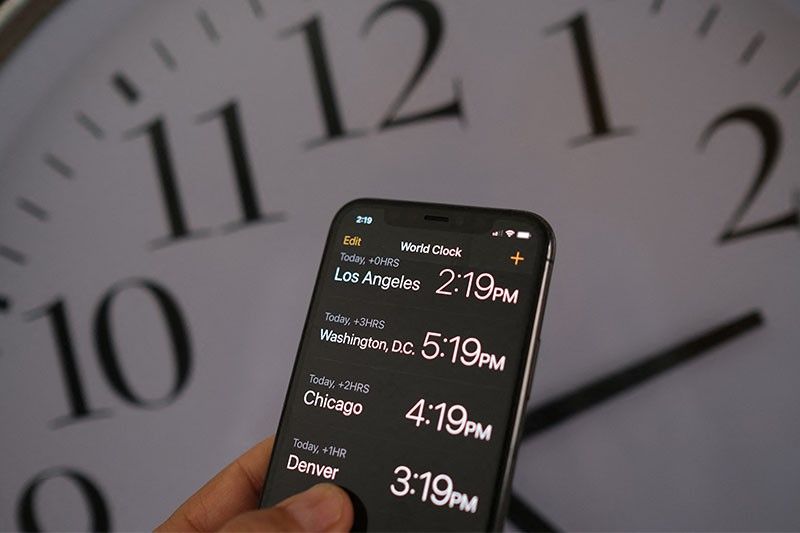US moves to end 'spring forward, fall back' clock changes

WASHINGTON, United States — The US Senate advanced a bill Tuesday that would bring an end to the twice-yearly changing of clocks, in favor of a "new, permanent standard time" that would mean brighter winter evenings.
The Sunshine Protection Act, which still needs the backing of the House of Representatives, would mean no more losing an hour in bed every spring and fewer journeys home in the dark for school children and office workers.
It was introduced last year by Republican Marco Rubio — a senator from the "Sunshine State" of Florida — who said studies had shown a permanent daylight saving time (DST) could benefit the economy.
"It's really straightforward. Cutting back on the sun during the fall and winter is a drain on the American people and does little to nothing to help them," Rubio said in a statement ahead of the vote.
"It's time we retire this tired tradition."
Rubio told colleagues on the Senate floor the United States sees an increase in heart attacks and road accidents in the week that follow the changing of the clocks.
DST was first adopted by the federal government during World War I but repealed after seven months while tweaks were made. Senators agreed unanimously to do away with the current version, which lasts from March until November.
The clamor has increased in recent years to make DST permanent, especially among politicians and lobbyists from the Northeast, where frigid conditions are normal in the early winter mornings.
Rubio said he'd sought input from the business community and it was agreed that the change should not take place until November 2023.
"This is a big, sensible step forward," added Democratic Senator Sheldon Whitehouse, a co-sponsor of the bill who had earlier appealed on Twitter for fellow legislators to "brighten the coldest months with an extra hour of afternoon sun."
The legislation won't affect Hawaii and most of Arizona, the Navajo Nation, American Samoa, Guam, the Northern Mariana Islands, Puerto Rico and the US Virgin Islands, which do not spring forward in summer.
- Latest
- Trending






























